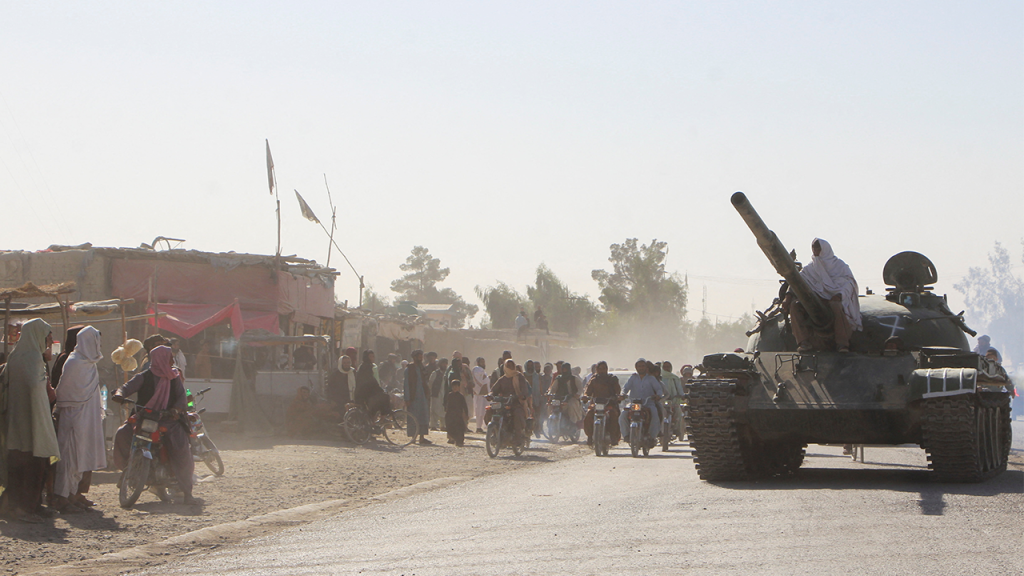Pakistan-Taliban Peace Talks Collapse, Escalating Border Tensions
In a dramatic turn of events, Pakistan’s defense minister has issued a stark warning to the Taliban-controlled Afghanistan, threatening to “obliterate” the regime after peace negotiations between the two countries broke down in Istanbul. This development marks a dangerous escalation in relations between the neighboring states, which have already seen their worst violence since the Taliban’s return to power in 2021.
The failed Istanbul talks, mediated by Turkey and Qatar, followed deadly clashes earlier this month that claimed dozens of lives along the 1,600-mile border. According to Pakistan Information Minister Attaullah Tarar, the negotiations concluded without a “workable solution,” despite an earlier ceasefire brokered in Doha on October 19. The breakdown appears to hinge on Pakistan’s demand that Afghanistan rein in the Pakistani Taliban, a separate terrorist group that Islamabad claims operates freely from Afghan territory. “Pakistan does not require to employ even a fraction of its full arsenal to completely obliterate the Taliban regime and push them back to the caves for hiding,” Defense Minister Khawaja Asif declared in a provocative statement on social media, signaling a potential shift toward more aggressive military action.
The core disagreement centers on Pakistan’s allegation that the Afghan Taliban is harboring the Pakistani Taliban (also known as Tehrik-i-Taliban Pakistan or TTP), which has launched deadly attacks against Pakistani security forces. Pakistani officials expressed frustration that their Afghan counterparts kept “deviating from the core issue” during talks, engaging in what they described as deflection and a “blame game.” A Pakistani security source revealed that the Taliban leadership was unwilling to take meaningful action against the TTP, while Afghan representatives countered that they had no control over the group’s activities. This fundamental disconnect proved impossible to bridge in Istanbul, despite earlier hopes that the temporary ceasefire would lead to more permanent arrangements.
The current crisis was triggered when Pakistan conducted air strikes targeting the head of the Pakistani Taliban in Kabul and other locations earlier this month. The Afghan Taliban responded with attacks on Pakistani military posts along the border, which remains closed to regular traffic. Despite the official ceasefire agreement, violence has continued, with weekend clashes resulting in the deaths of five Pakistani soldiers and 25 Pakistani Taliban members. These incidents highlight the fragility of any temporary arrangements and the deep-seated tensions that continue to simmer beneath diplomatic efforts. Defense Minister Asif’s warning that the failure to reach an agreement would mean “open war” now looms ominously over the region.
The deteriorating situation presents significant challenges for regional stability. Pakistan has historically maintained complex relations with various Taliban factions, having supported the Afghan Taliban during their insurgency against U.S.-led forces while simultaneously fighting the Pakistani Taliban, which seeks to overthrow the Pakistani government. This delicate balancing act has become increasingly difficult since the Afghan Taliban’s return to power in 2021. For Afghanistan, already isolated internationally and facing severe economic hardships, conflict with Pakistan could prove catastrophic, potentially cutting off crucial border crossings and trade routes. International mediators like Turkey and Qatar appear unable to bridge the widening gulf between the two sides, raising concerns about whether external powers have sufficient leverage to prevent further escalation.
The human cost of this conflict is already substantial and threatens to grow exponentially if full-scale hostilities resume. Border communities on both sides have endured decades of violence and displacement, with civilian populations caught between militant groups, state security forces, and international interventions. The failure of these peace talks represents not just a diplomatic setback but a potential humanitarian disaster for a region already struggling with poverty, food insecurity, and limited access to basic services. For ordinary citizens in border areas, the collapse of negotiations means continued uncertainty and fear as they brace for possible new waves of violence.
As tensions mount, the international community watches with growing concern. The United States, having withdrawn from Afghanistan in 2021, has limited influence over the Taliban government but maintains security ties with Pakistan. Regional powers like China, Russia, and Iran all have stakes in preventing a wider conflict that could destabilize Central and South Asia. Whether cooler heads will prevail remains uncertain, but what is clear is that the path to sustainable peace between Pakistan and Taliban-ruled Afghanistan appears increasingly remote. The harsh rhetoric from Pakistan’s defense establishment, coupled with the Taliban’s apparent unwillingness or inability to address concerns about terrorist havens, suggests that the region may be entering a dangerous new phase of confrontation rather than cooperation.














